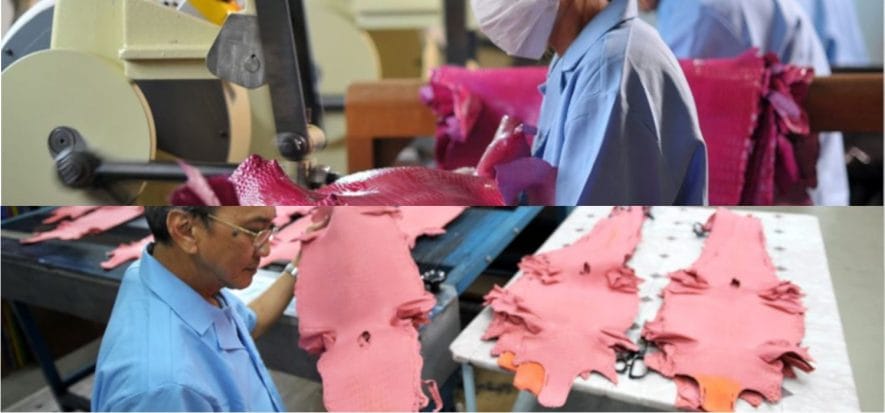“Breeders do play a part in the preservation of species: as a matter of fact, conservation plans rely on breeders, whose action is essential”. Such statement, issued by Koh Chon Tong, general manager of Heng Long, a tannery specialized in exotic skins, might come across as inappropriate to leather non-professionals. Yet, since in the luxury headquarters several fashion brands, such as Chanel to begin with, progressively give up making use of “exotic skins”, in the name of a hazy sense of responsibility, Heng Long manager decided to focus again on the topic, while speaking to the South China Morning newspaper. “The exotic skins industry is subject to cast-iron rules; furthermore, breeding farms, which supply crocodile skins to my tannery, are supposed to comply with even stricter standards”, he pointed out. How does the leather-tanning industry actually support the preservation of species? In Louisiana, breeding farms, which supply Heng Long, take the eggs in the wildlife. When reptiles turn one year old, 12% of them get free out in their natural environment: such percentage turns out to be higher, compared to those who survive in the wild during the first year of their life. The tannery (headquartered in Singapore and controlled, since 2011, by LVMH, which own 51% of the company), abides by CITES guidelines and liaises with the Crocodile Specialist Group (CSG). LVMH have announced new standards, which sound achievable: Koh Chon Tong pledges that all of his suppliers will award a certification by the end of 2020.
Picture from henglong.com











